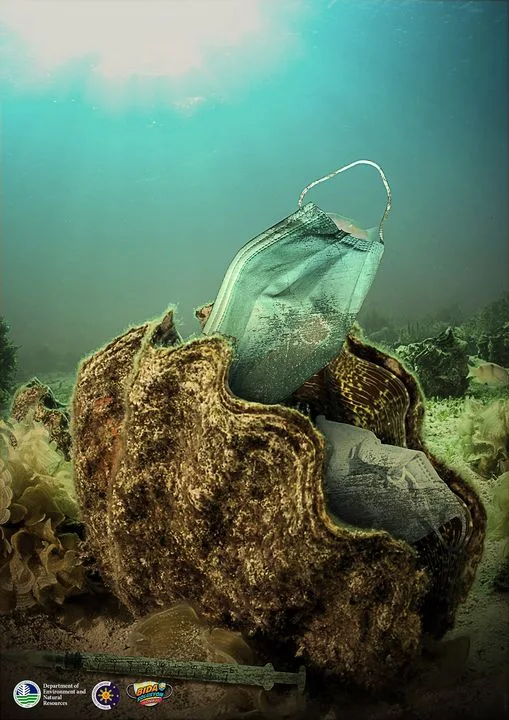The Alarming Facemasks Wastes Ending Up In Oceans
Following the recent discovery of single-use face masks entangled in the coral reefs of Anilao, Batangas, Environment Secretary Roy A. Cimatu said the increasing amount of improperly discarded household healthcare wastes during the pandemic has become a serious cause for concern.
Cimatu said “the recent discovery of disposable face masks, plastic face shields, and other household healthcare wastes in our reefs is alarming. These wastes will harm both marine life and divers."
He stressed that while it is vital to follow minimum public health protocols to curb the spread of coronavirus, it is as important to be aware of each person's responsibilities to the environment.
As remedial measures, Environment Undersecretary for Solid Waste Management and Local Government Units (LGUs) Concerns Benny D. Antiporda said, “We have coordinated with the Philippine Coast Guard to ensure that all international and inter-island vessels, and even fishing vessels, have placed yellow bins for the proper disposal and storage of generated COVID-19 related healthcare waste such as, used face masks, gloves, cottons, tissue papers, and testing kits”.
In this way, Antiporda added that solid waste ending up in our waterways especially the oceans will be avoided.
The Department of Environment and Natural Resources (DENR) is also working closely with the Department of the Interior and Local Government that has a directive to LGUs on handling household healthcare wastes, cleaning of esteros, and reminding those living near waterways to not throw wastes directly in the bodies of water.
Antiporda expressed that the DENR, together with its partner-agencies, will further discuss effective solutions to address the "global problem" of household healthcare wastes ending up in oceans and other water bodies.
He acknowledged that handling of used face masks and gloves from households is more difficult than those collected from hospitals and quarantine facilities.
"These (quarantine and medical) facilities are required to put up a treatment facility and get a hauling permit, so monitoring medical wastes comes easy with these sectors," he said.
However, he emphasized that strict compliance with waste segregation at source is still the best way to manage solid waste.
"Since the start of the pandemic in March 2020, we already expected that more household healthcare wastes will be generated. Hence, the DENR through the National Solid Waste Management Commission (NSWMC), has issued reminders on the proper disposal of these wastes," said Antiporda who is also the alternate chair of the NSWMC.
He echoed Cimatu's reminder to the LGUs to prioritize the handling of pandemic-related wastes by imposing strict segregation of wastes in households, implementing effective collection system, and providing yellow bins for potentially infectious wastes or personal protective equipment.
The DENR has already distributed yellow bins to the city government of Manila in November 2020, and is set to distribute in other LGUs in the coming months.
CUT the strings before throwing out.
Reaching as many people as possible: please pass on
ALSO WATCH:
Help Save The Environment! Engage in Waste Management Best Practices & Advocacy
Advice From A Sea Turtle - Take It Slow | Keep Calm and #savetheseaturtles
BIODIVERSITY: Why Its loss, Is Your Loss @Food and Agriculture Organization of the United Nations









No comments:
Got Something to Say? Thoughts? Additional Information?